Closing remarks at MEPC 69
IMO Secretary-General, Kitack Lim, spoke at the end of the 69th session of the Marine Environment Protection Committe (MEPC).
Marine Environment Protection Committee (MEPC), 69th session 18-22 April 2016 (closing remarks)
Closing remarks by Kitack Lim, Secretary-General of the International Maritime Organization (IMO).
Mr. Chairman, distinguished delegates and observers,
This is another exceptionally busy as well as momentous session of the Committee and your hard work and, in particular, the decisions made over these past five days should, therefore, be recognized with immense appreciation. In the interest of time, I will only mention a few matters.
***
A lot of focus has been on the Committee's work on further technical and operational measures for enhancing energy efficiency of international shipping. Through the approval of the draft amendments to MARPOL Annex VI on the establishment of a fuel consumption data collection system you have sent the message once again that IMO is the appropriate international body to address the impact of GHG emissions from international shipping.
In your negotiations, you have clearly demonstrated:
- a firm determination to serve the best interests of the environment;
- a clear demonstration of willingness to preserve the unity of the membership;
- a preparedness to negotiate in good faith;
- a readiness to compromise; and
- a commitment to build consensus.
These attributes fill me with pride as I close this first session of the MEPC as Secretary-General of the Organization. Especially, as today is designated by the UN as Earth Day, and further today the signing ceremony for the Paris Agreement on Climate Change is taking place in New York.
I am looking forward to the next session adopting the mandatory fuel consumption data collection system, which will be a milestone towards more important work envisaged at the second and third steps in the agreed three-phase approach.
I welcome the successful completion of all the tasks assigned to the Ad Hoc Expert Working Group on Facilitation of Transfer of Technology for Ships through resolution MEPC.229(65). I am very pleased that many of the recommendations have already been incorporated in the Organization's activities. I have no doubt that the implementation of the fuel consumption data collection system would also benefit from these recommendations. The Secretariat, on its part, will spare no effort to address any specific needs of LDCs and SIDs with regard to implementation of ship energy efficiency requirements.
I listened attentively to the constructive debate on how the Organization could best support the goals set out in the Paris Agreement. I am eagerly expecting further constructive discussions at the session in October on how best to progress this matter.
***
Moving to ballast water management, I am pleased to observe the approval of the draft amendments to regulation B-3 of the Convention to reflect the objectives of resolution A.1088(28), the good progress made in the revision of the Guidelines for approval of ballast water management systems (G8) as well as the intersessional work arrangements to expedite the remaining work.
MEPC has responded to the concerns raised by the shipping industry. I therefore reiterate my personal request to Member Governments to accelerate the national ratification process in their countries without any further delay. A mere 0.21% of the world's gross merchant shipping tonnage is needed – we are almost there!
***
Distinguished delegates,
In concluding, I thank you all and, in particular, the Committee's Chairman and Vice-Chairman, Mr. Arsenio Dominguez of Panama and Mr. Hideaki Saito of Japan. Together, they have been a splendid team, working closely together and performing to the highest standards expected from the Organization.
To you, Arsenio, I wish to express my special thanks for steering the Committee through yet another very demanding session. Once again, you kept things moving and - most importantly - made sure everybody stayed on board. The decisions reached at this session, within the very short time available, on so many diverse and often complex issues also owes much to the straightforward manner and the enviable cheerfulness with which you guide the delegates, both in the meeting room and behind the scenes.
To you, Hideaki, I also wish to express my sincere thanks for your commitment, strong leadership and valuable contributions particularly in the Working Group. I also thank the chairmen of the various groups convened during this session to support the Committee's work, namely, Ms. Mäkinen of Finland, Mr. Wiley of Canada, Mr. Yoshida of Japan and Mr. Steinbock of Germany.
Last but not least I wish to pay a special tribute to all the dedicated staff of the Marine Environment Division for their truly excellent and highly professional work. All this is only possible through strong team work and leadership, which the Division's Director, Stefan Micallef, has delivered with commendable commitment, supported by all the staff in the Division under the additional guidance of Ms. Heike Deggim. I also thank all the staff of the Conference Division, as well as the interpreters, ably led by the Division's Director, Mrs. Olga O'Neil, all of them often work very long hours and, together with many officers from other Divisions, serve your meetings tirelessly and with high quality support services.
***
Distinguished delegates,
Before I close my statement, I wish to say farewell to some among us, who are about to leave and we thank them wholeheartedly for their valuable contributions to the work of the Committee and IMO.
I wish to mention, in particular, Mr. Marten Koopmans of EMSA, a stalwart friend and supporter of the Organization, who made an invaluable contribution to shipping and IMO.
Our farewells and good wishes are also extended to two senior directors of the Organization, who will be retiring later this year, Mrs. Olga O'Neil, Director of Conference Division and Mr. Jo Espinoza-Ferrey, Director of Administrative Division.
The Marine Environment Division will itself see two staff members retire soon. They are: Mr. Dandu Pughiuc, Senior Deputy Director of Sub-Division for Implementation and Mr. James Paw, Technical Officer of the same Sub-Division.
Captain Pughiuc, joined the Marine Environment Division in 2000, and has made significant contributions to the Organization's work and objectives. He played an instrumental role in supporting the Organization's efforts in development and adoption of the Ballast Water Management Convention and supporting the implementation of various marine environmental conventions by overseeing a number of technical cooperation and capacity building activities that the Organization initiated over the years.
James has done sterling work for technical assistance activities of the Marine Environment Division since he joined IMO in 1994. I wish to particularly commend his great contribution in the successful implementation of the Internet-based UN Atlas of the Oceans and the GEF/World Bank/IMO Project on Regional Marine Electric Highway in the Straits of Malacca and Singapore.
Dandu and James, I thank you for your unfailing commitments and services to the Organization, and wish you well for a long, happy and healthy retirement.
It now remains for me to wish you all a nice weekend - and to those who have to travel home a safe journey.
Thank you.
Closing remarks by Kitack Lim, Secretary-General of the International Maritime Organization (IMO).
Mr. Chairman, distinguished delegates and observers,
This is another exceptionally busy as well as momentous session of the Committee and your hard work and, in particular, the decisions made over these past five days should, therefore, be recognized with immense appreciation. In the interest of time, I will only mention a few matters.
***
A lot of focus has been on the Committee's work on further technical and operational measures for enhancing energy efficiency of international shipping. Through the approval of the draft amendments to MARPOL Annex VI on the establishment of a fuel consumption data collection system you have sent the message once again that IMO is the appropriate international body to address the impact of GHG emissions from international shipping.
In your negotiations, you have clearly demonstrated:
- a firm determination to serve the best interests of the environment;
- a clear demonstration of willingness to preserve the unity of the membership;
- a preparedness to negotiate in good faith;
- a readiness to compromise; and
- a commitment to build consensus.
These attributes fill me with pride as I close this first session of the MEPC as Secretary-General of the Organization. Especially, as today is designated by the UN as Earth Day, and further today the signing ceremony for the Paris Agreement on Climate Change is taking place in New York.
I am looking forward to the next session adopting the mandatory fuel consumption data collection system, which will be a milestone towards more important work envisaged at the second and third steps in the agreed three-phase approach.
I welcome the successful completion of all the tasks assigned to the Ad Hoc Expert Working Group on Facilitation of Transfer of Technology for Ships through resolution MEPC.229(65). I am very pleased that many of the recommendations have already been incorporated in the Organization's activities. I have no doubt that the implementation of the fuel consumption data collection system would also benefit from these recommendations. The Secretariat, on its part, will spare no effort to address any specific needs of LDCs and SIDs with regard to implementation of ship energy efficiency requirements.
I listened attentively to the constructive debate on how the Organization could best support the goals set out in the Paris Agreement. I am eagerly expecting further constructive discussions at the session in October on how best to progress this matter.
***
Moving to ballast water management, I am pleased to observe the approval of the draft amendments to regulation B-3 of the Convention to reflect the objectives of resolution A.1088(28), the good progress made in the revision of the Guidelines for approval of ballast water management systems (G8) as well as the intersessional work arrangements to expedite the remaining work.
MEPC has responded to the concerns raised by the shipping industry. I therefore reiterate my personal request to Member Governments to accelerate the national ratification process in their countries without any further delay. A mere 0.21% of the world's gross merchant shipping tonnage is needed – we are almost there!
***
Distinguished delegates,
In concluding, I thank you all and, in particular, the Committee's Chairman and Vice-Chairman, Mr. Arsenio Dominguez of Panama and Mr. Hideaki Saito of Japan. Together, they have been a splendid team, working closely together and performing to the highest standards expected from the Organization.
To you, Arsenio, I wish to express my special thanks for steering the Committee through yet another very demanding session. Once again, you kept things moving and - most importantly - made sure everybody stayed on board. The decisions reached at this session, within the very short time available, on so many diverse and often complex issues also owes much to the straightforward manner and the enviable cheerfulness with which you guide the delegates, both in the meeting room and behind the scenes.
To you, Hideaki, I also wish to express my sincere thanks for your commitment, strong leadership and valuable contributions particularly in the Working Group. I also thank the chairmen of the various groups convened during this session to support the Committee's work, namely, Ms. Mäkinen of Finland, Mr. Wiley of Canada, Mr. Yoshida of Japan and Mr. Steinbock of Germany.
Last but not least I wish to pay a special tribute to all the dedicated staff of the Marine Environment Division for their truly excellent and highly professional work. All this is only possible through strong team work and leadership, which the Division's Director, Stefan Micallef, has delivered with commendable commitment, supported by all the staff in the Division under the additional guidance of Ms. Heike Deggim. I also thank all the staff of the Conference Division, as well as the interpreters, ably led by the Division's Director, Mrs. Olga O'Neil, all of them often work very long hours and, together with many officers from other Divisions, serve your meetings tirelessly and with high quality support services.
***
Distinguished delegates,
Before I close my statement, I wish to say farewell to some among us, who are about to leave and we thank them wholeheartedly for their valuable contributions to the work of the Committee and IMO.
I wish to mention, in particular, Mr. Marten Koopmans of EMSA, a stalwart friend and supporter of the Organization, who made an invaluable contribution to shipping and IMO.
Our farewells and good wishes are also extended to two senior directors of the Organization, who will be retiring later this year, Mrs. Olga O'Neil, Director of Conference Division and Mr. Jo Espinoza-Ferrey, Director of Administrative Division.
The Marine Environment Division will itself see two staff members retire soon. They are: Mr. Dandu Pughiuc, Senior Deputy Director of Sub-Division for Implementation and Mr. James Paw, Technical Officer of the same Sub-Division.
Captain Pughiuc, joined the Marine Environment Division in 2000, and has made significant contributions to the Organization's work and objectives. He played an instrumental role in supporting the Organization's efforts in development and adoption of the Ballast Water Management Convention and supporting the implementation of various marine environmental conventions by overseeing a number of technical cooperation and capacity building activities that the Organization initiated over the years.
James has done sterling work for technical assistance activities of the Marine Environment Division since he joined IMO in 1994. I wish to particularly commend his great contribution in the successful implementation of the Internet-based UN Atlas of the Oceans and the GEF/World Bank/IMO Project on Regional Marine Electric Highway in the Straits of Malacca and Singapore.
Dandu and James, I thank you for your unfailing commitments and services to the Organization, and wish you well for a long, happy and healthy retirement.
It now remains for me to wish you all a nice weekend - and to those who have to travel home a safe journey.
Thank you.
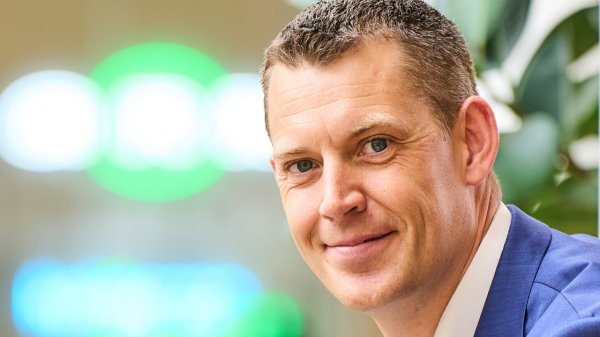
|
Martin Vorgod elevated to CEO of Global Risk Management
Vorgod, currently CCO at GRM, will officially step in as CEO on December 1, succeeding Peder Møller. |
|
|
|
||
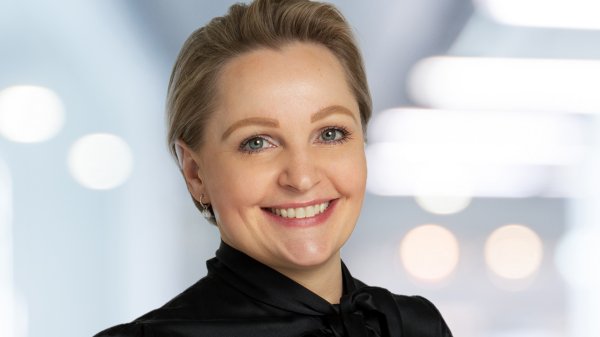
|
Dorthe Bendtsen named interim CEO of KPI OceanConnect
Officer with background in operations and governance to steer firm through transition as it searches for permanent leadership. |
|
|
|
||
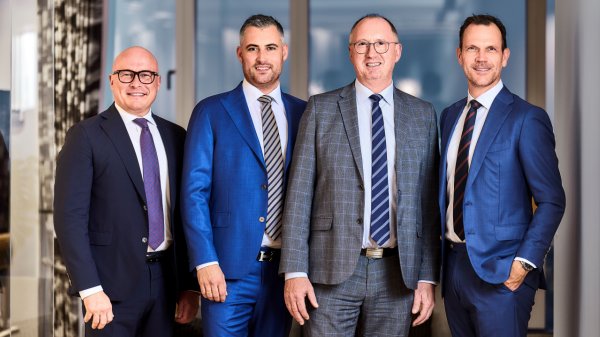
|
Bunker Holding revamps commercial department and management team
CCO departs; commercial activities divided into sales and operations. |
|
|
|
||
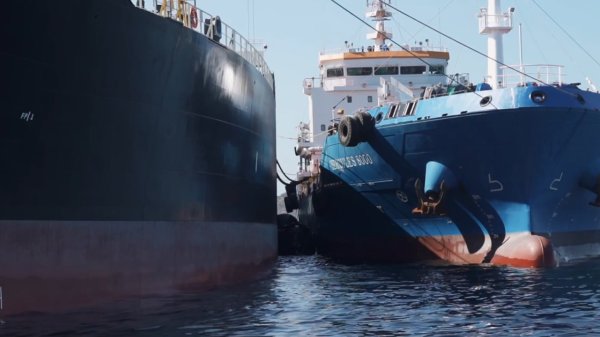
|
Peninsula extends UAE coverage into Abu Dhabi and Jebel Ali
Supplier to provide 'full range of products' after securing bunker licences. |
|
|
|
||
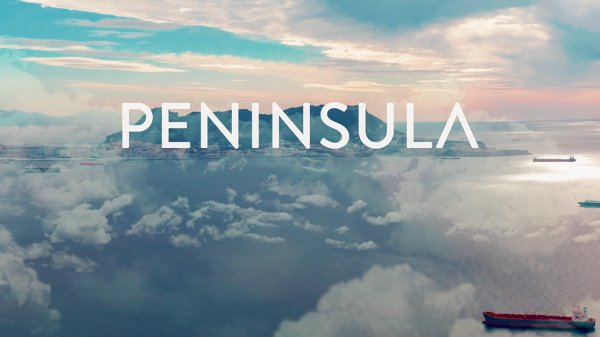
|
Peninsula to receive first of four tankers in Q2 2025
Methanol-ready vessels form part of bunker supplier's fleet renewal programme. |
|
|
|
||
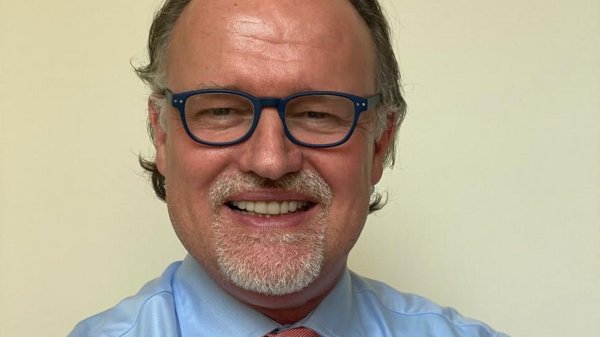
|
Stephen Robinson heads up bunker desk at Tankers International
Former Bomin and Cockett MD appointed Head of Bunker Strategy and Procurement. |
|
|
|
||
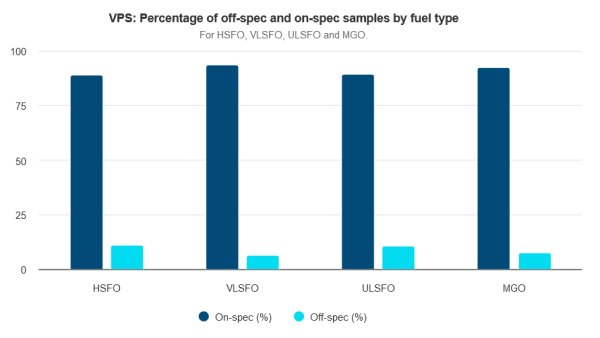
|
Is your vessel fully protected from the dangers of poor-quality fuel? | Steve Bee, VPS
Commercial Director highlights issues linked to purchasing fuel and testing quality against old marine fuel standards. |
|
|
|
||
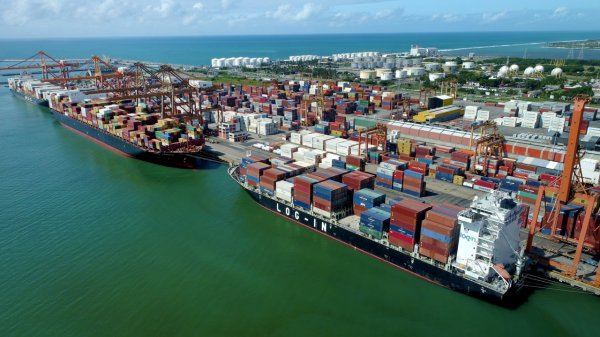
|
GDE Marine targets Suape LSMGO by year-end
Expansion plan revealed following '100% incident-free' first month of VLSFO deliveries. |
|
|
|
||
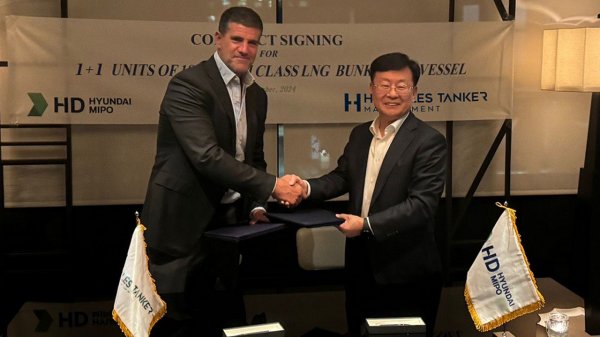
|
Peninsula CEO seals deal to build LNG bunker vessel
Agreement signed through shipping company Hercules Tanker Management. |
|
|
|
||
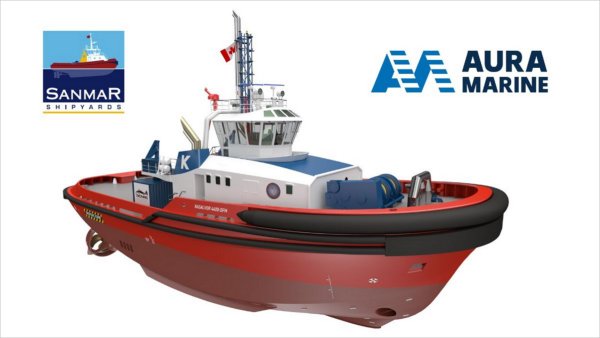
|
Auramarine supply system chosen for landmark methanol-fuelled tugs
Vessels to enter into service in mid-2025. |
|
|
|
||
Related Links
- · MEPC 'failed to achieve the required minimum outcome' [Insights]
- · ICS 'welcomes progress' on CO2 reduction at IMO meeting [Insights]
- · Secretary-General's speech at MEPC 69 [Insights]
- · Fuel consumption data on the agenda at MEPC 69 [Insights]
- · ICS calls for 'immediate' decision on IMO sulphur cap [Insights]
- · United Kingdom [Directory]

